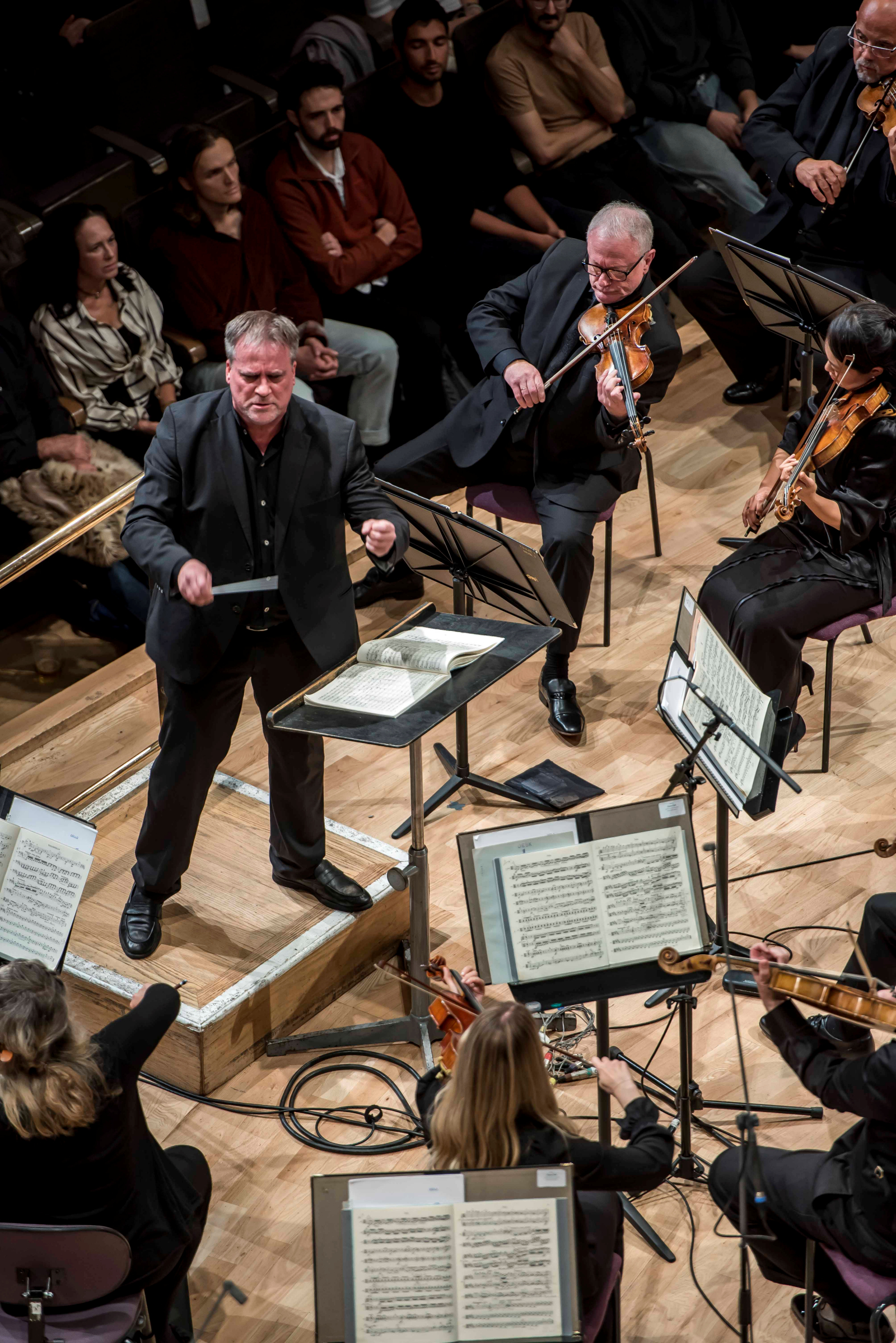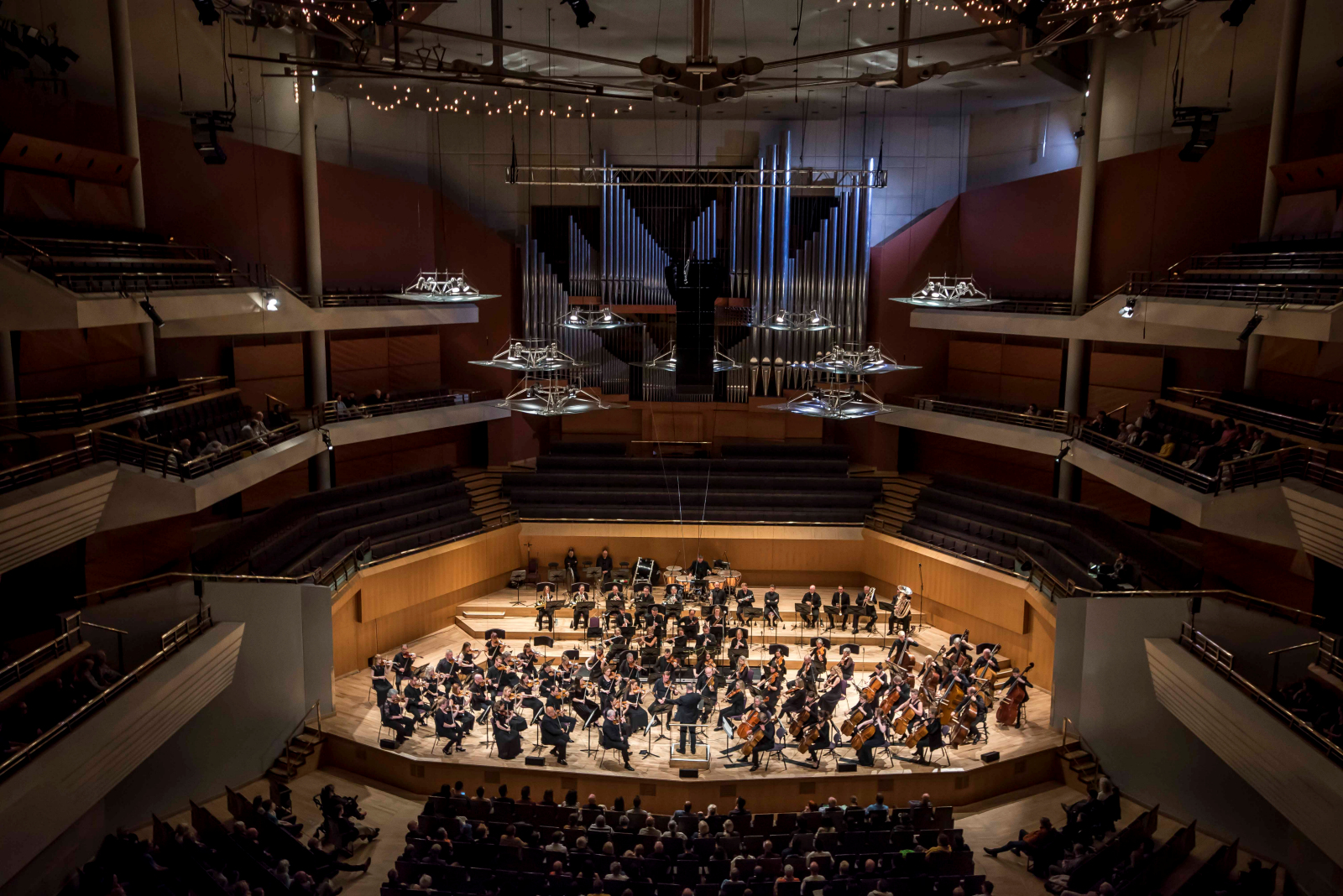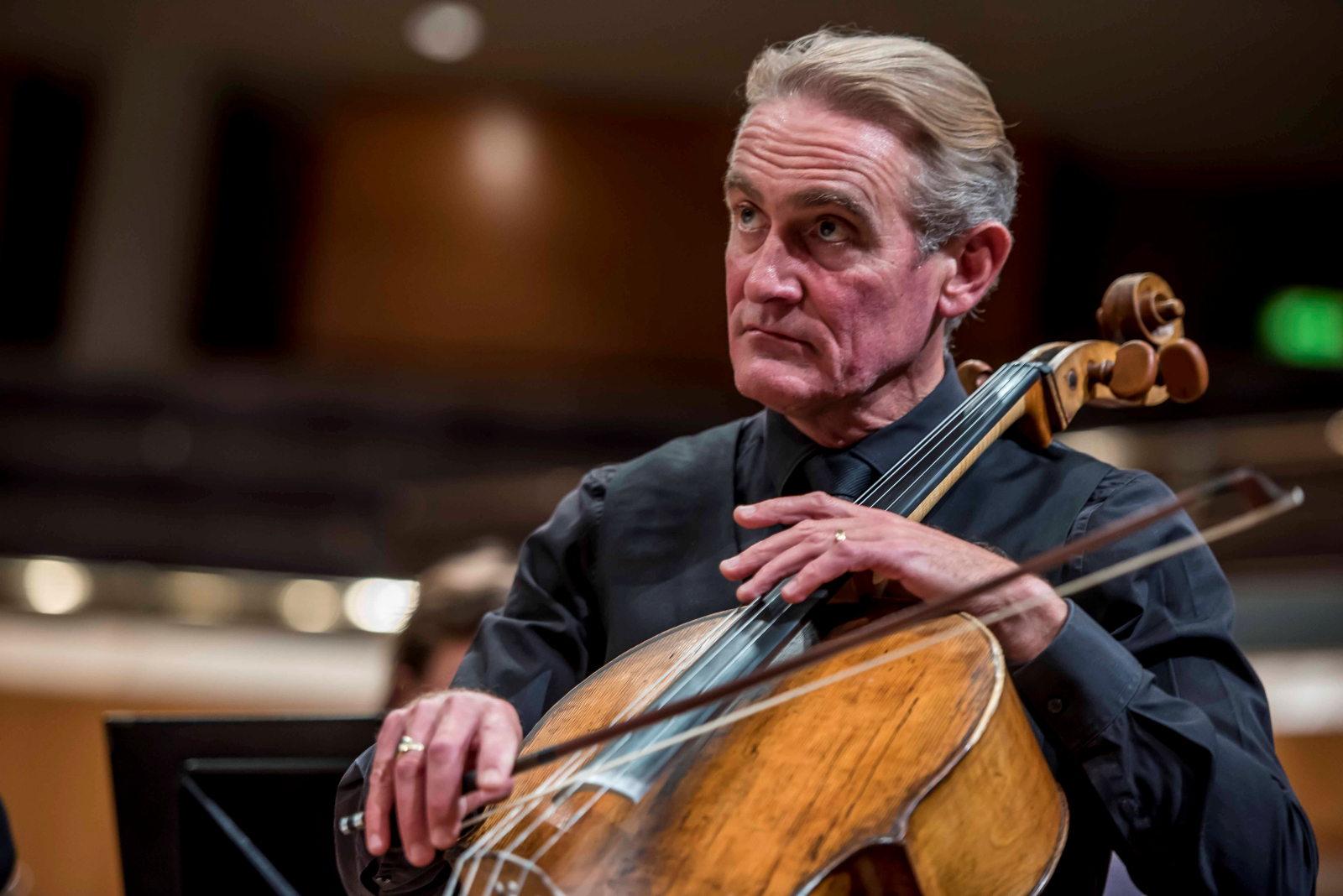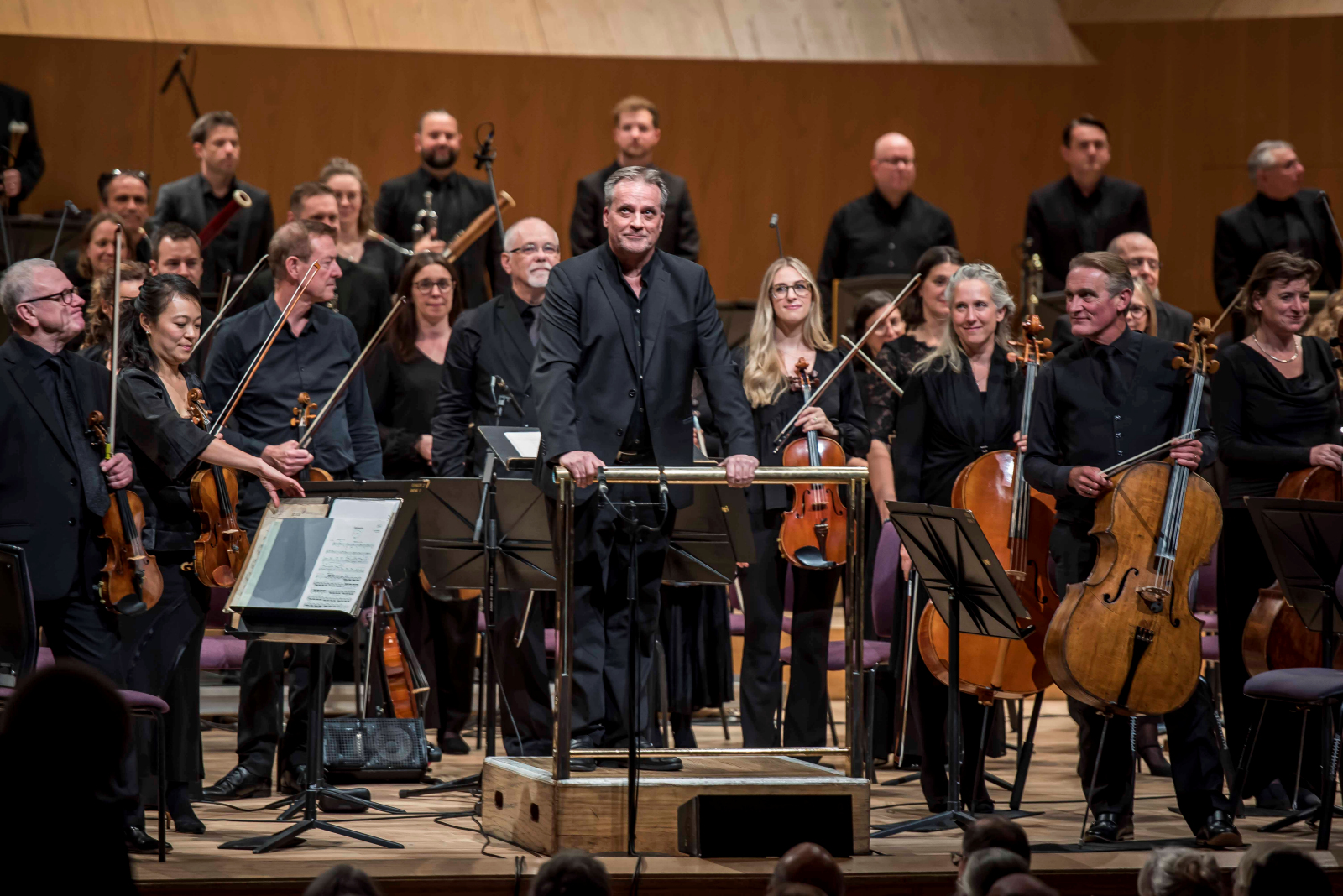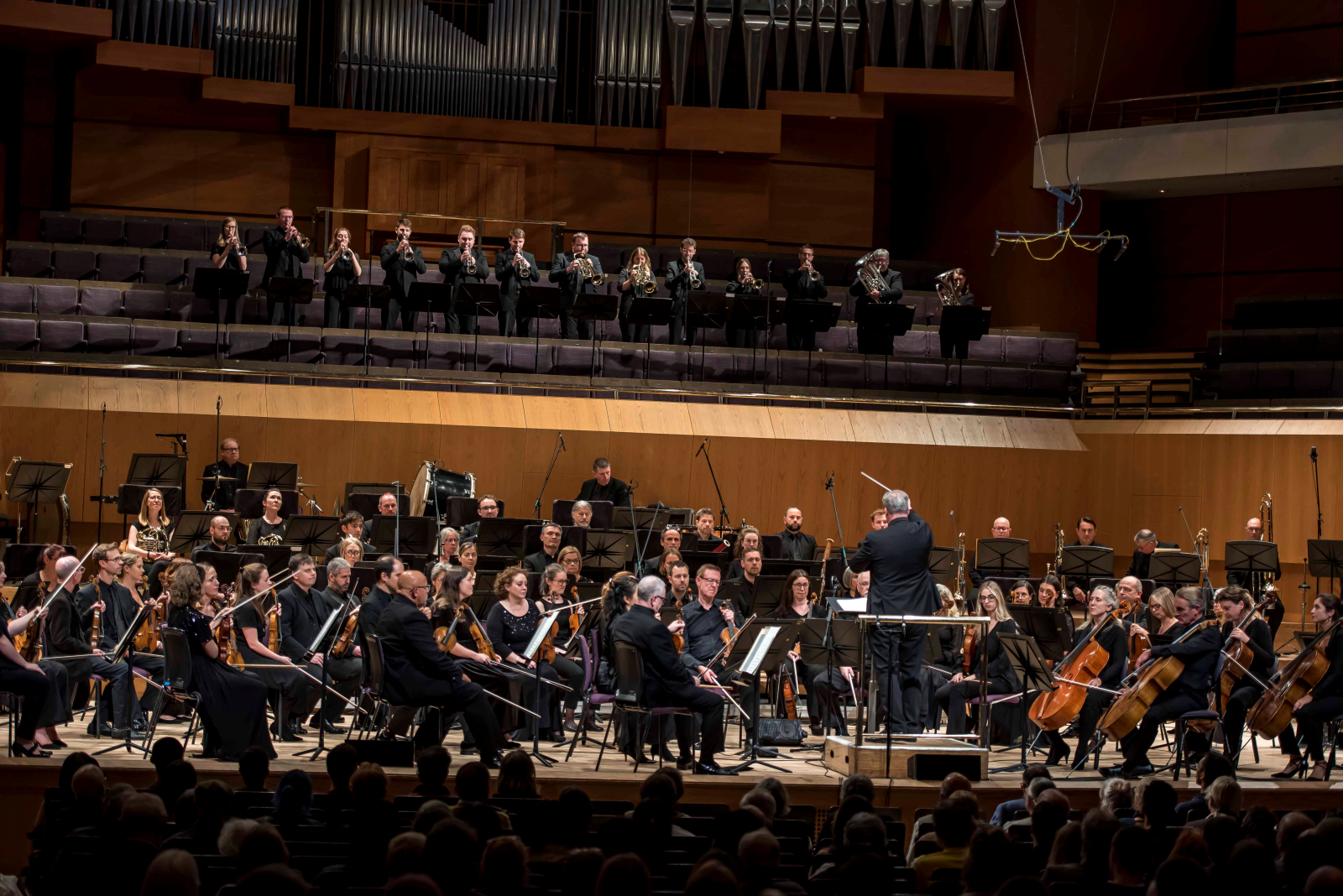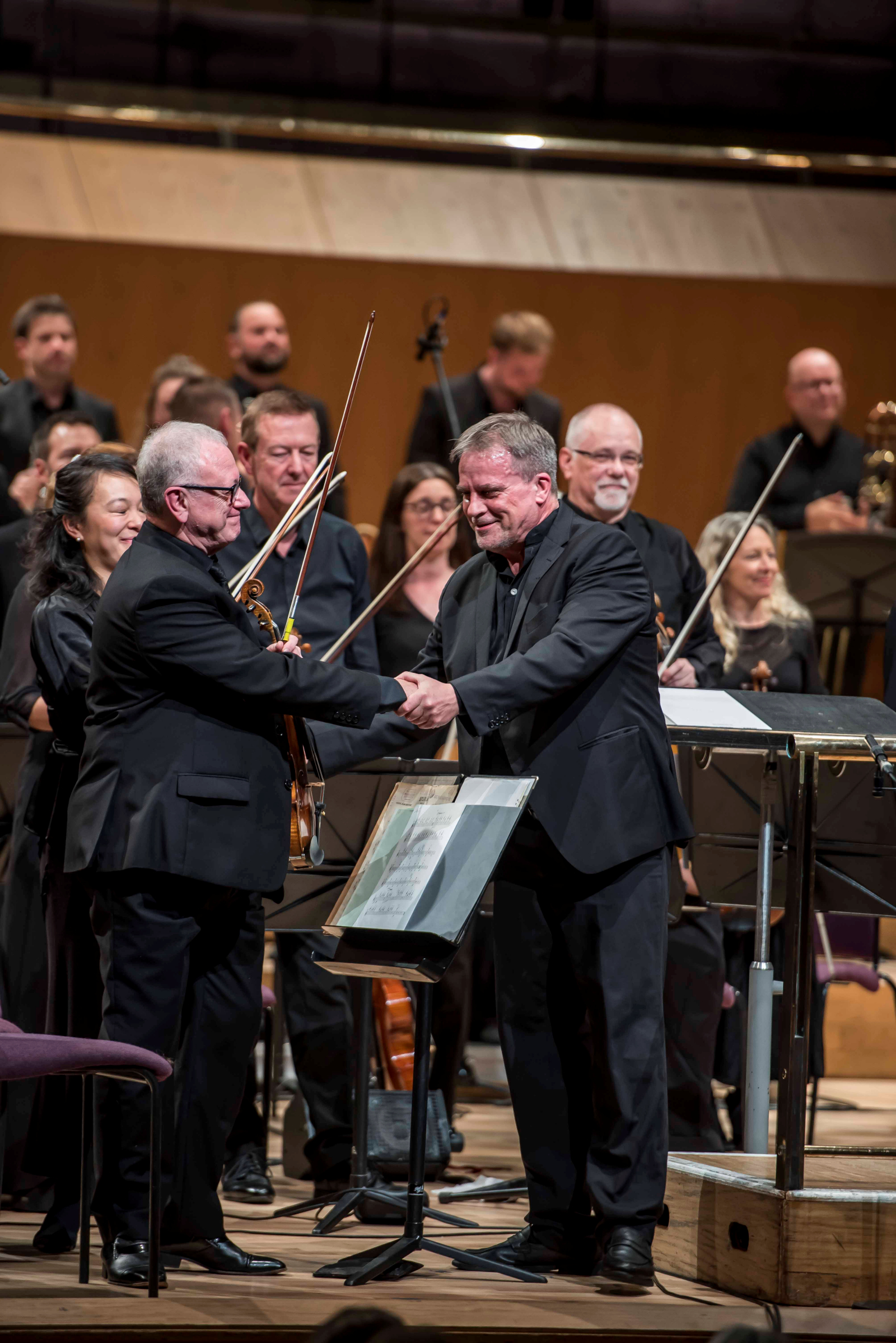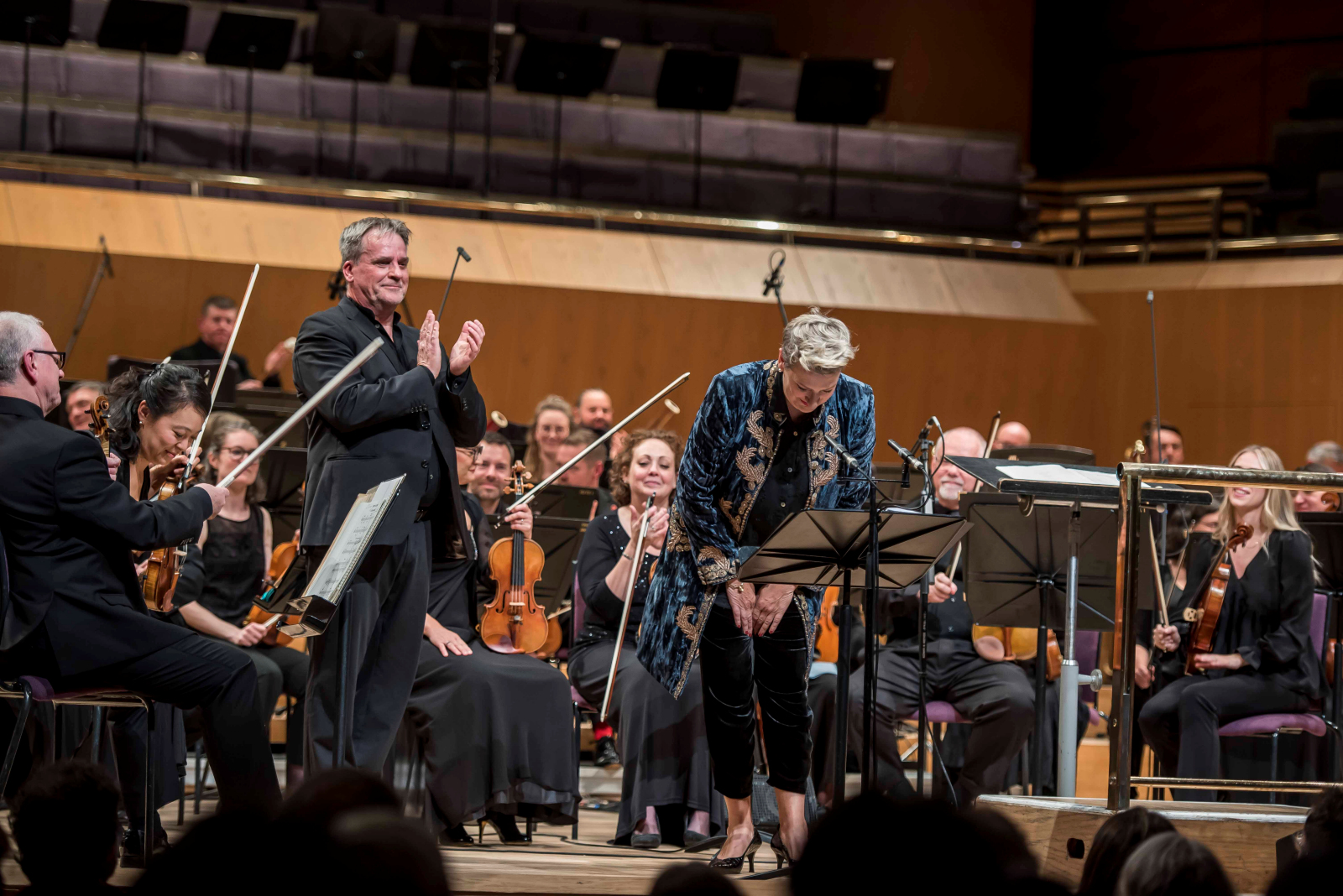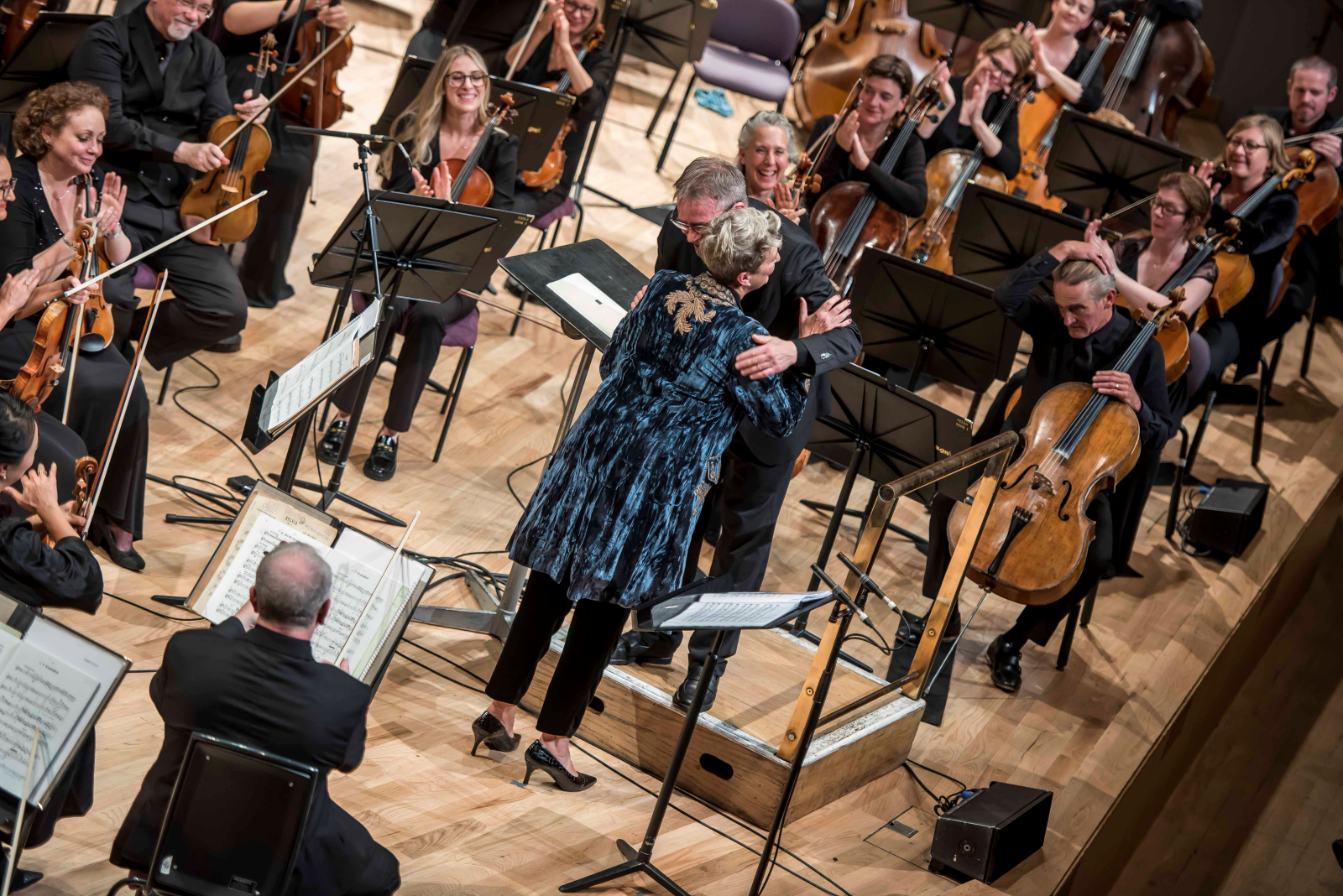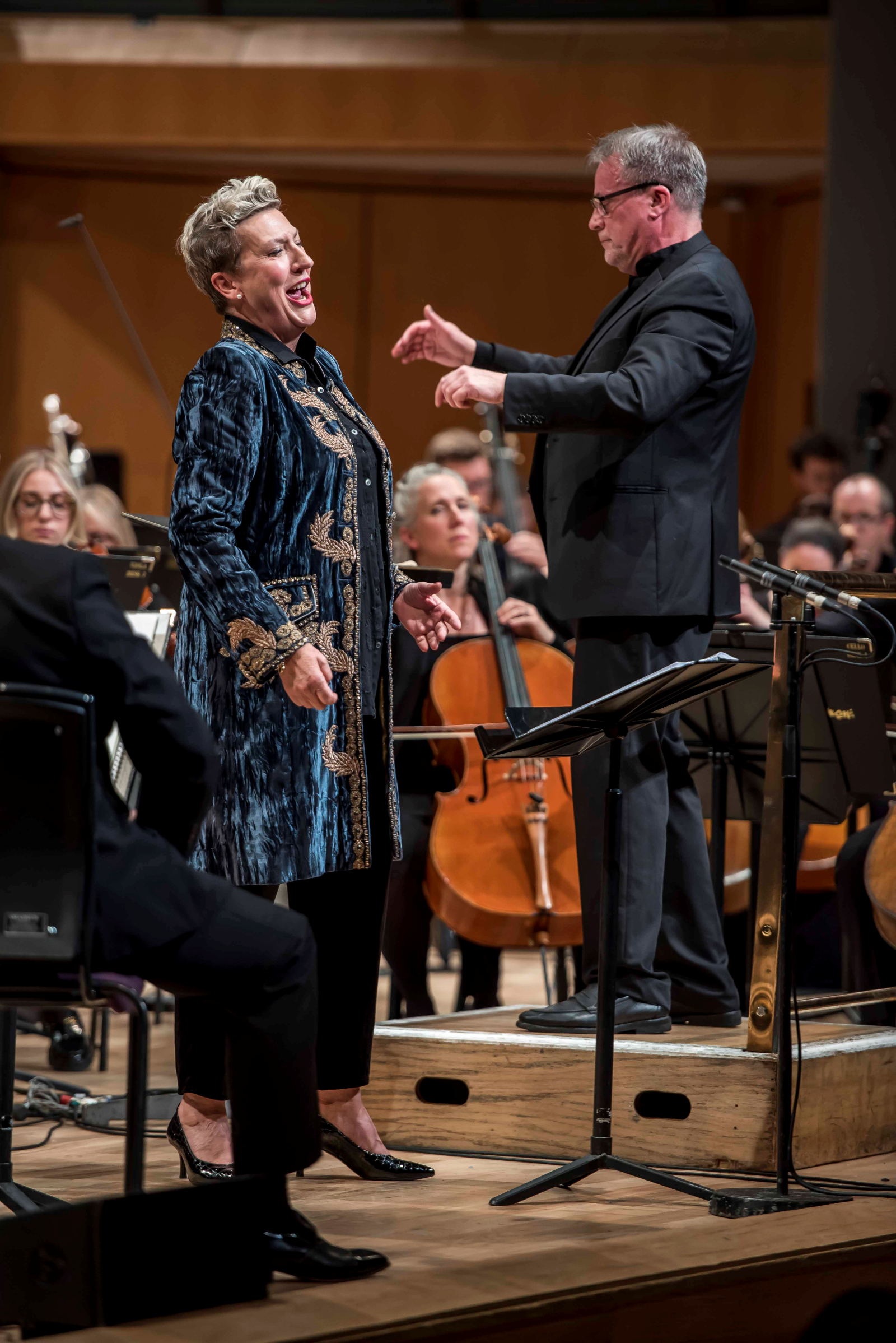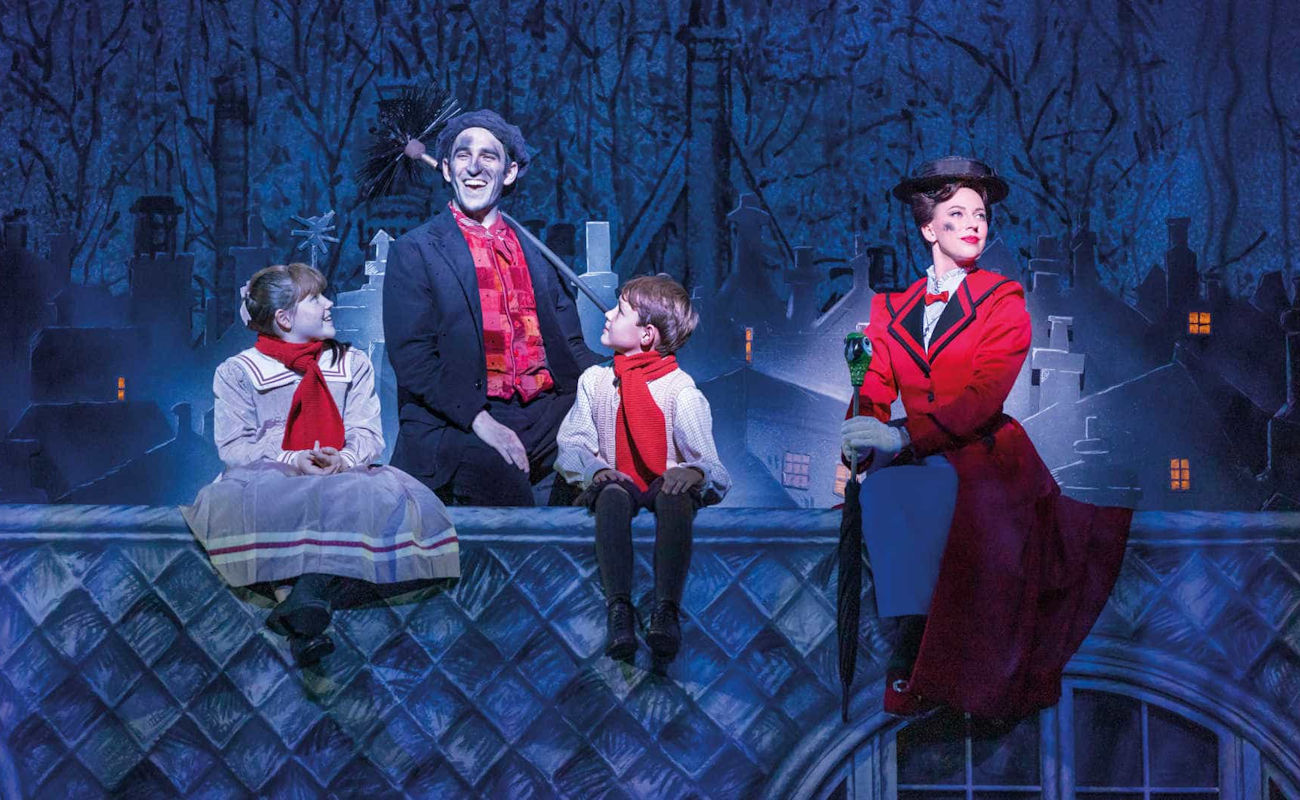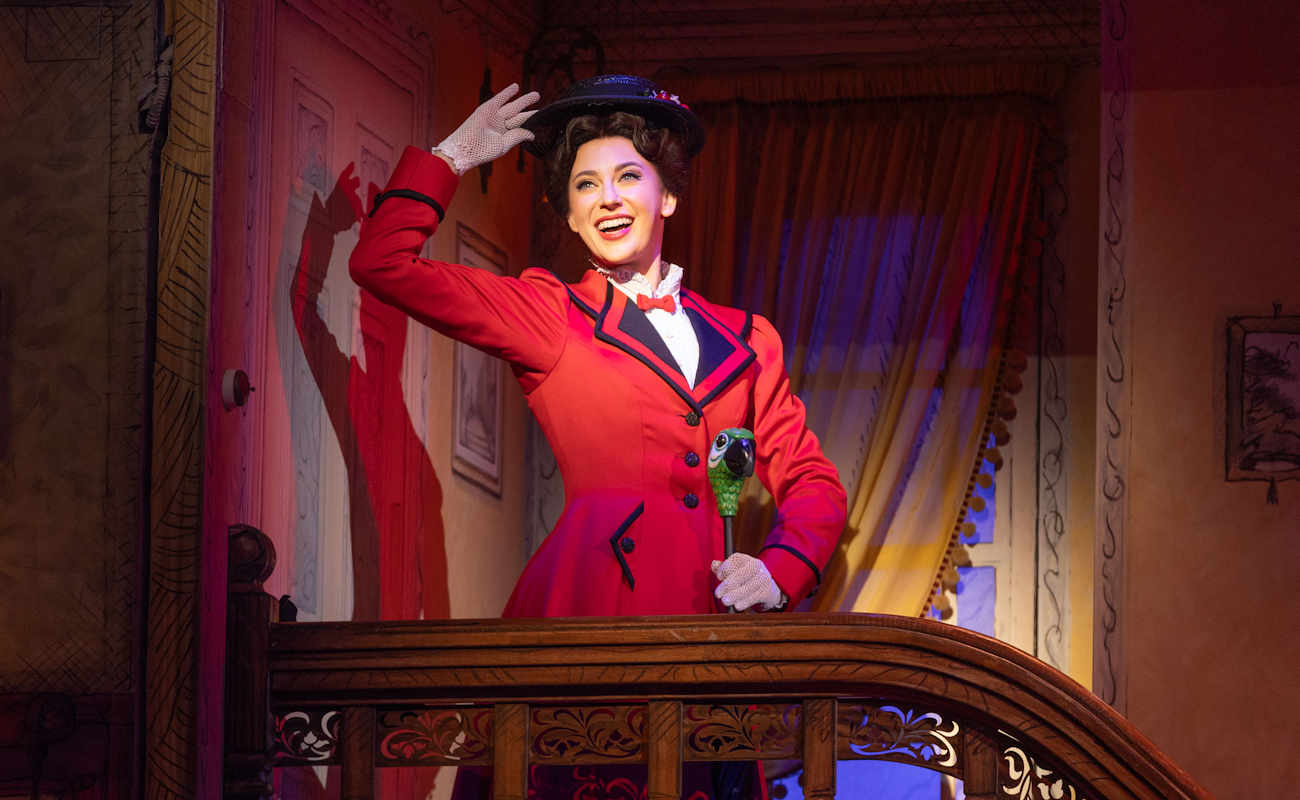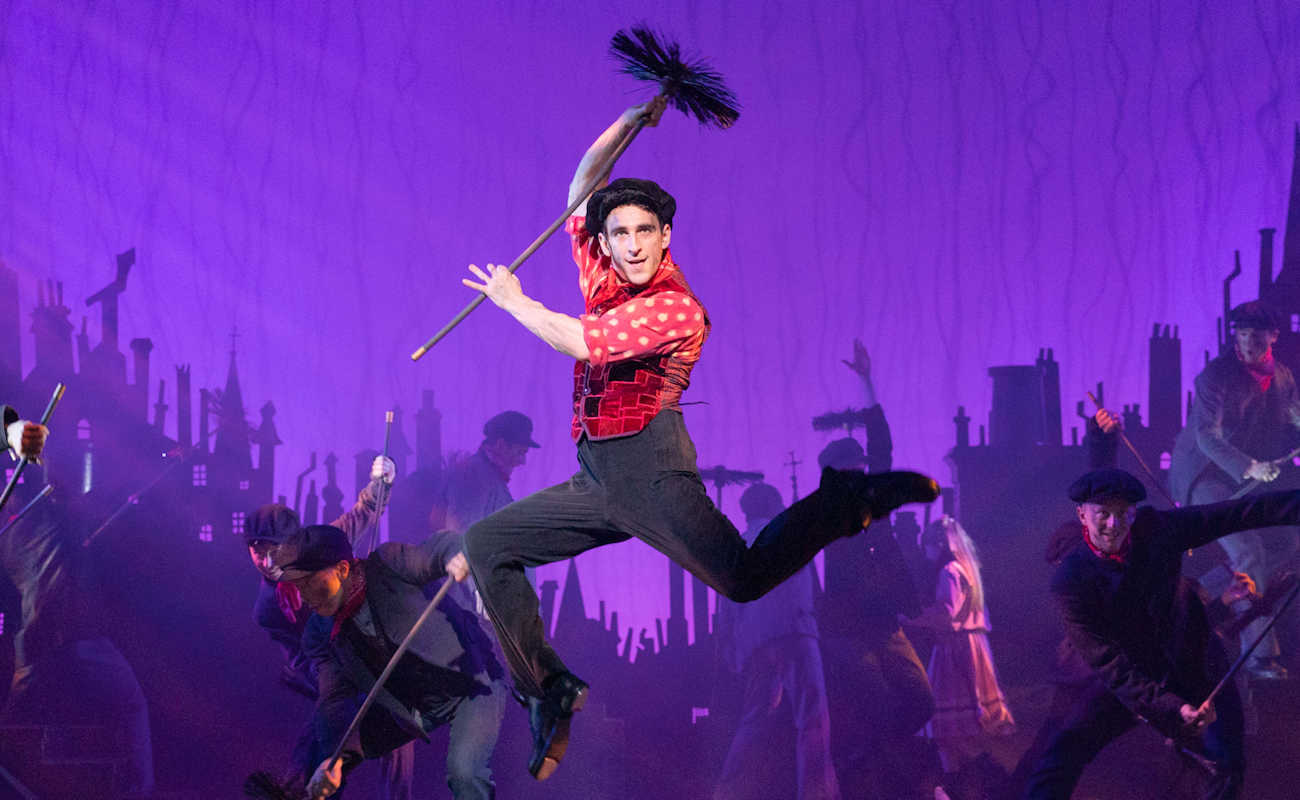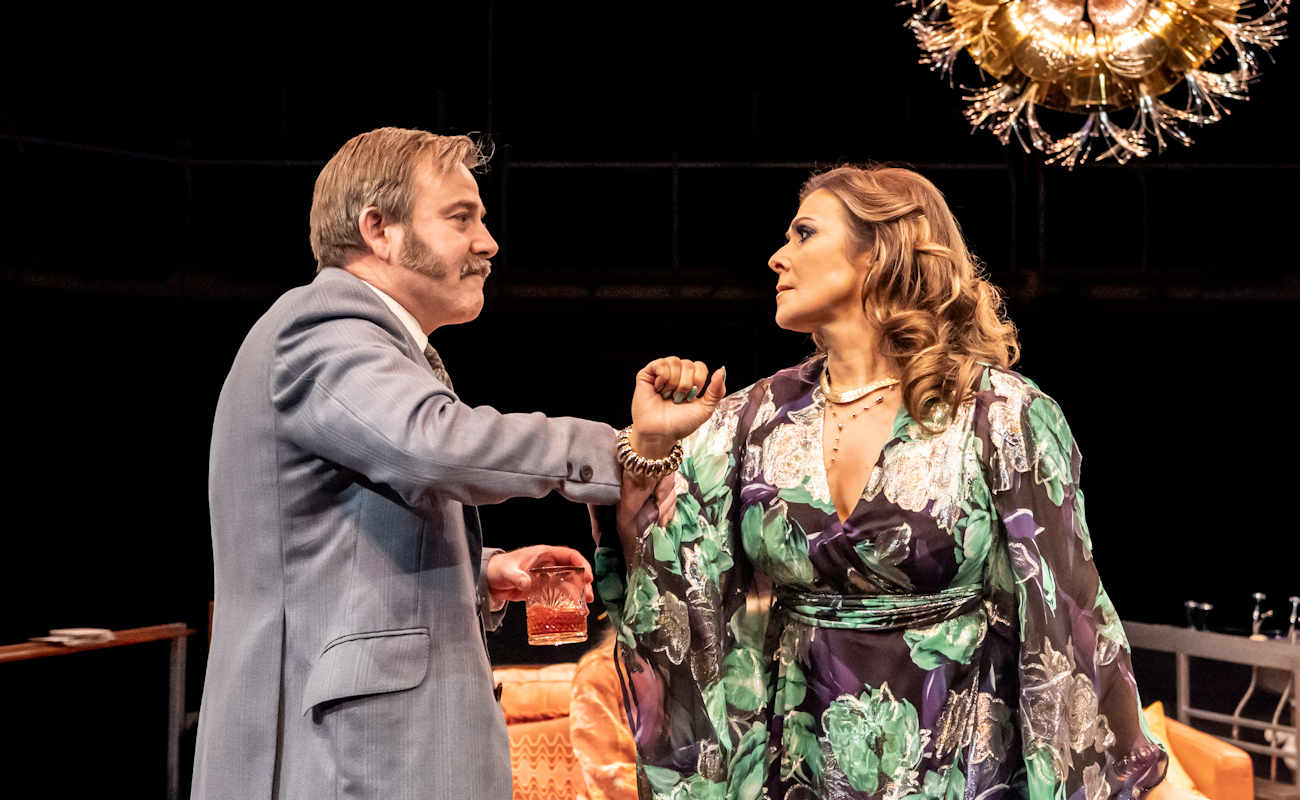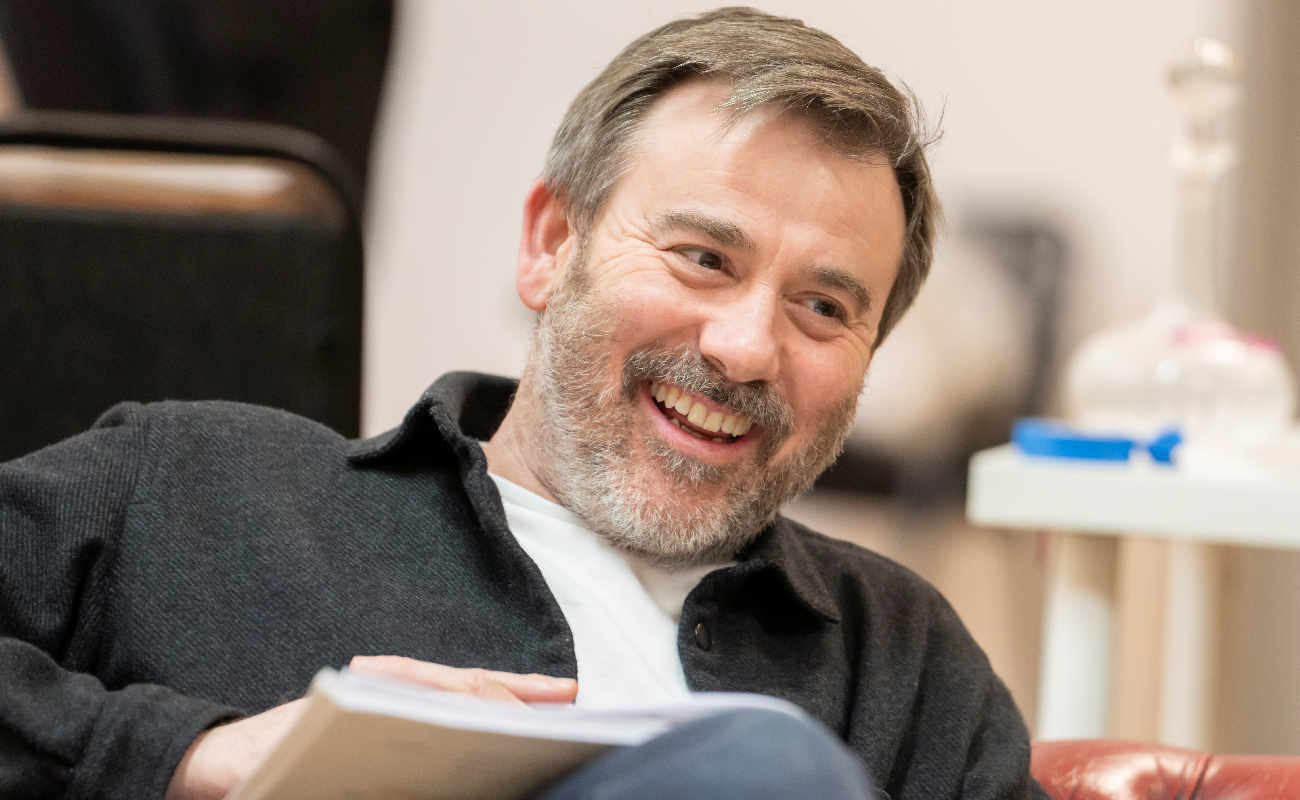Manchester Theatre News & Reviews
REVIEW - BBC Philharmonic open their new season with a powerful and emotional performance!
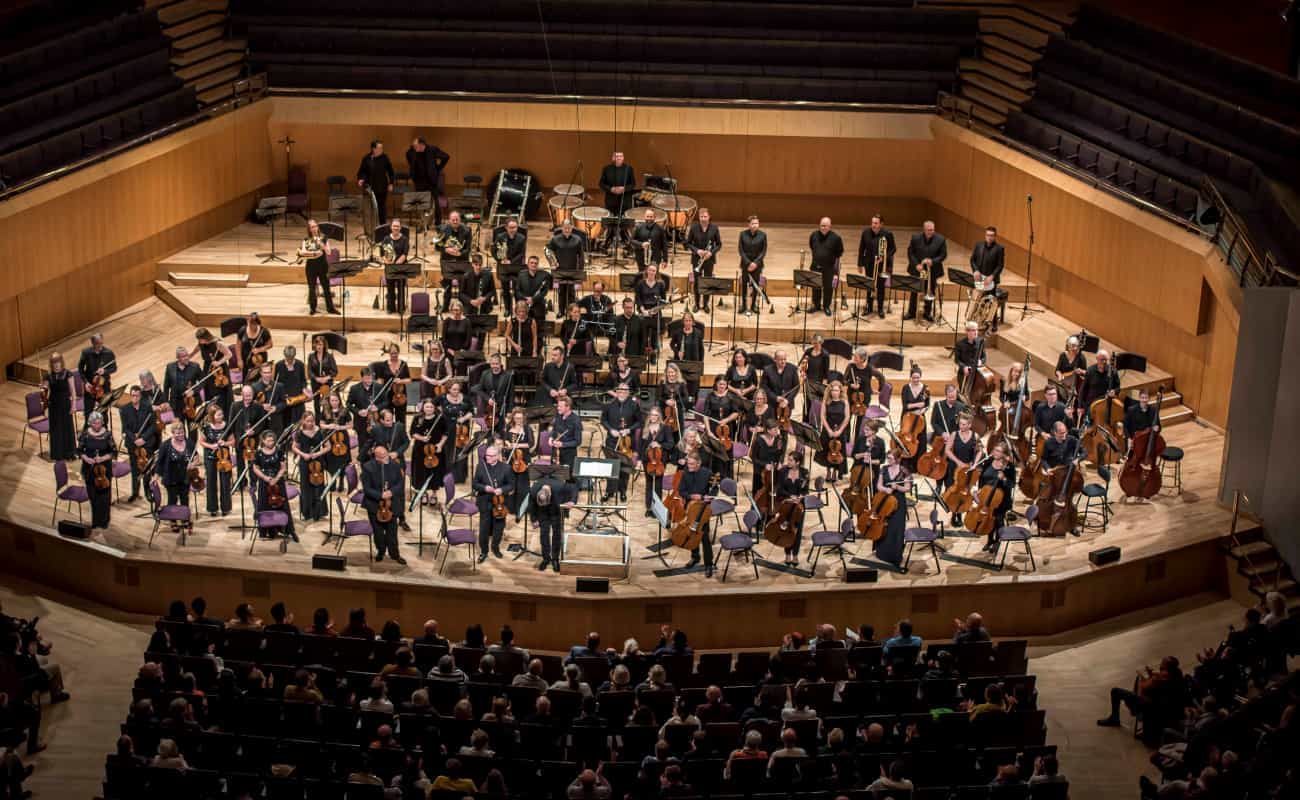 CHECK OUT BBC PHILHARMONIC 2023/24 SEASON
CHECK OUT BBC PHILHARMONIC 2023/24 SEASON
On Saturday, we went to the Bridgewater Hall, Manchester to watch the BBC Philharmonic perform Janacek, Alma Mahler and Tchaikovsky. Read what our reviewer Christa Norton thought about this wonderful evening...
This concert marks the opening of the BBC Philharmonic’s 23/24 season at the Bridgewater Hall and their first with conductor John Storgards in position as Chief Conductor. He clearly is looking to create an impact. There is so much to talk about in this programme that it is difficult to know where to begin:Janacek’s Sinfonietta with its strong military overtones and dedication to the free Czechoslovakian man, which has obvious resonance with the increasing destabilisation we see today in Eastern Europe; the growing recognition of Alma Mahler’s own brilliance as a composer and the implications for today’s female composers; or the masterpiece that is Tchaikovsky’s 6th Symphony, ‘Pathetique’. Actually, what really piqued my interest was to hear how these very diverse pieces would sit together thematically, and to try to understand the journey on which John Storgards and the BBC Philharmonic wanted to take tonight’s audience.
The evening began ahead of the concert with a touching tribute to Clare “Clara” Dixon (1966 – 2023) who passed away earlier this year and who had played First Violin with the orchestra for over 30 years. A short programme which included Bach’s Concerto for Two Violins and a fabulous arrangement by Julian Gregory of Aaron Copland’s Hoe-down was performed with passion and clear emotion and made for a touching start to the evening.
Janacek’s Sinfonietta is both bold and brassy – literally, as the orchestration has an extended brass section boasting 25 players. The piece was originally dedicated to the Czechoslovakian Army and, by Janacek’s own description is intended to depict "contemporary free man, his spiritual beauty and joy, his strength, courage and determination to fight for victory”.
The BBC Philharmonic did not disappoint. The opening fanfare was simply awe-inspiring. The tempo was a little more deliberate than I have heard previously, but actually this gave space for the brass to play with a joyous lyricism that made the fanfare more akin to a peal of bells. The additional brass players were stood in the choir seats, above the orchestra, allowing their fanfare to cascade over the hall, making excellent use of the cavernous acoustics within the Bridgewater Hall.
The fanfare leads us into a suite of four movements, each one named after a different part of Janacek’s beloved Brno, as though he is taking us on a musical tour of the city. Across each movement, the music moves quickly from scherzos which seem to depict the hustle and bustle of tiny streets to huge and expansive melodies that speak to greater landscapes. Storgards kept this performance lively throughout each movement with sharp pivots in pace, but the orchestra more than matched his ask, playing with crispness and clarity which meant the detail of Janacek’s meticulous score did not get lost. This was a wonderful opening performance that really showcased this orchestra’s renowned richness of sound, and particularly the ability of the strings to create deep, lush tonal textures that the audience can get lost in, perfect for the Romantic era.
Alma Mahler’s 6 Songs, arranged by Colin and David Matthews and performed by the mezzo-soprano Dame Sarah Connolly, built on this theme of rich and emotive tonality.
A prodigious musician and composer in her own right, Alma Mahler composed more than 50 songs during her life; this selection of 6 is taken from the 17 that are known to survive today. This perhaps explains why her work remains classed – as the programme says – as ‘less well trodden.’
It is difficult to gain a full sense of Alma Mahler’s artistic voice through just 6 short songs but this is a woman who lived an absolutely extraordinary life (including literally fleeing the Nazis by foot over the Pyrenees) and I find this sense of extraordinary reflected in her work. She is bold in her use of the chromatic, and I found a real sense of deliberate harmonic ambiguity in these songs. They are full of character – joy, menace, nostalgia – and this arrangement uses inventive orchestration to add a greater depth to the works. Dame Sarah Connolly, renowned for her championing and lifelong study of Gustav Mahler’s Leider, brought the full force of her sonorous voice to this performance, matching the richness of the music perfectly.
There were very occasional moments where the orchestration was a little heavy, and I found this affected the balance between voice and orchestra, but Connolly’s performance was mesmerising as she moved easily from playful to despairing to earnest, turning each song into its own small, perfect moment.
The BBC Philharmonic is leading the way in raising the profile of female composers – indeed they have recently appointed Anna Clyne as their Composer in Association. I hope that other orchestras and artistic directors continue to platform female composers such as Alma Mahler – judging by the wonderful reception from this evening’s audience, there is real public interest and appetite to hear more from them.
The second half of the concert saw the BBC Philharmonic take on Tchaikovsky’s 6th Symphony, ‘Pathetique’ I recently read this symphony described as “having a lot of baggage” – an accurate description if not quite the technical term.
Rumoured to have secret meanings, and premiered just 6 days before Tchaikovsky's untimely death, it is easy to get swept up in the possibilities of this swansong, with many renowned musicologists offering their own ideas on the programme for this piece. I must admit to finding this fascinating to a certain extent – understanding the context in which a composition was created often adds to my appreciation of a piece – but the Pathetique has no need of conspiracy theories to be a work of complex emotion and incredible musical innovation.
Together, Storgards and the BBC Philharmonic were in their element. The opening bars, with their slow, deep emergence of sound, were both enchanting and slightly sinister. It seemed as though the orchestra was hanging on to every note, reluctant to move onto the next until each note had been heard and acknowledged. Here, that quality of timbre so perfectly demonstrated by the BBC Philharmonic in the Janacek was given full reign, with the strings creating layer upon layer of texture over which the woodwind flew, with sprightly interplays of melody. Storgards really pushed the orchestra, keeping tempo changes sharp, creating glorious extremes of dynamic, even creating moments of pure silence throughout the work.
There are moments of relief from the emotion of this piece and I particularly welcomed the third movement with its wicked sense of mischievousness and musical jokes. However it was the last movement that really stood out, and made for a potent end to the concert. The last movement, traditionally a moment of triumph and optimism, here is a lament, a moment of intense and private emotional pain bared for the world to hear. The same sorrowful theme from the first movement returns, before the symphony slips slowly into silence.
The performance here managed to be both deeply emotional and restrained. There was a new tenderness to the music, and towards the end a gentleness that was missing before – a true sense of ‘Pathetique’. The effect on the audience was palpable: there was a stillness as the piece ended, and several seconds of pure silence before applause broke out and the spell was broken. A truly moving performance.
This concert was a bold opening statement for this 2023/2024 season. The upcoming programme includes Beethoven, Wagner and Strauss, with conductors the calibre of Mark Wigglesworth and Andrew Davies in the mix for the coming months. These are seminal works performed by exceptional musicians – an incredibly exciting programme that I can’t wait to hear.
This performance can be heard again as it is due to be broadcast by the BBC on 3rd October at 7.30pm as part of the Radion 3 in Concert series.
WE SCORE THIS CONCERT...
CHECK OUT BBC PHILHARMONIC CONCERTS
Photo credits: Chris Payne

